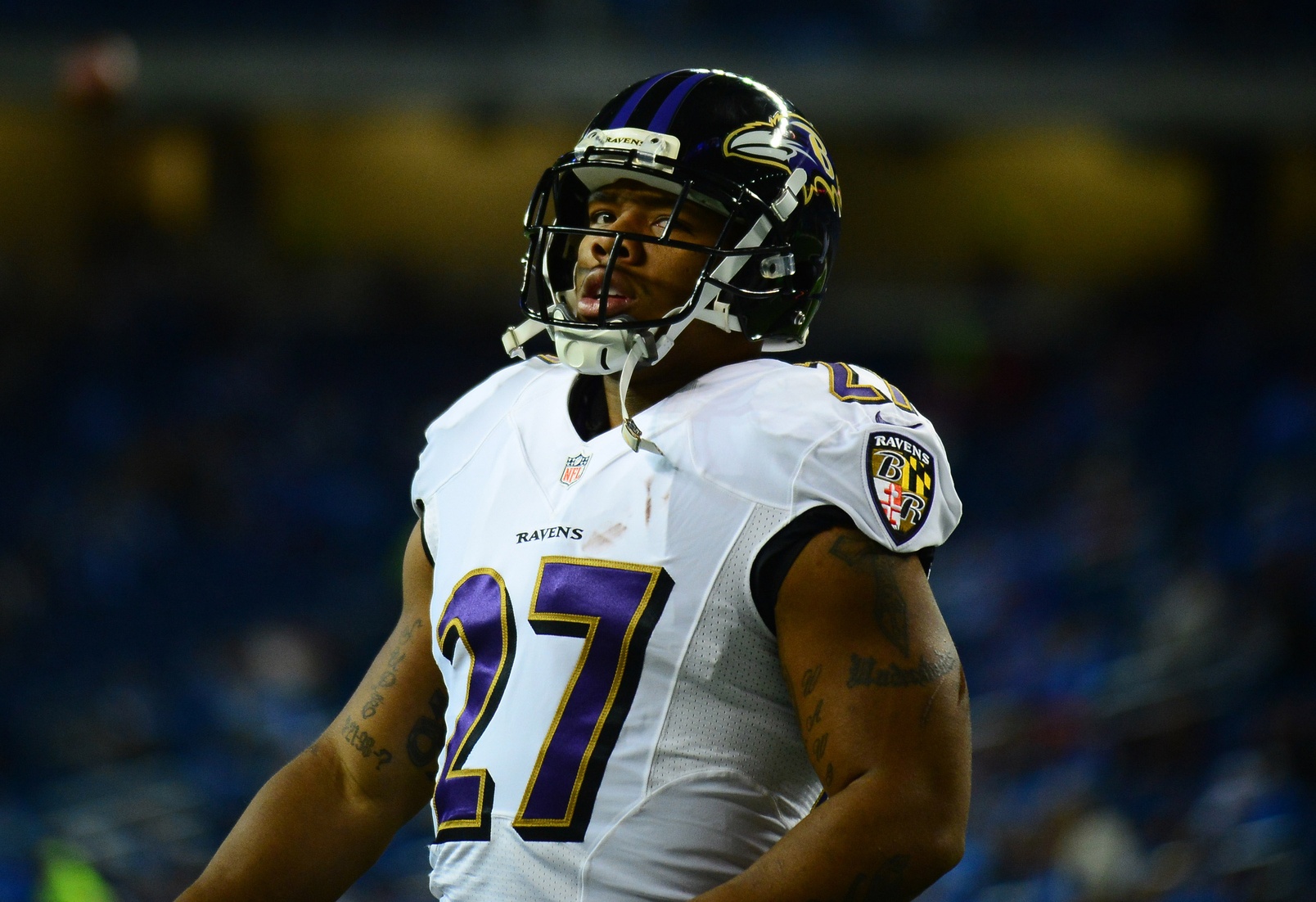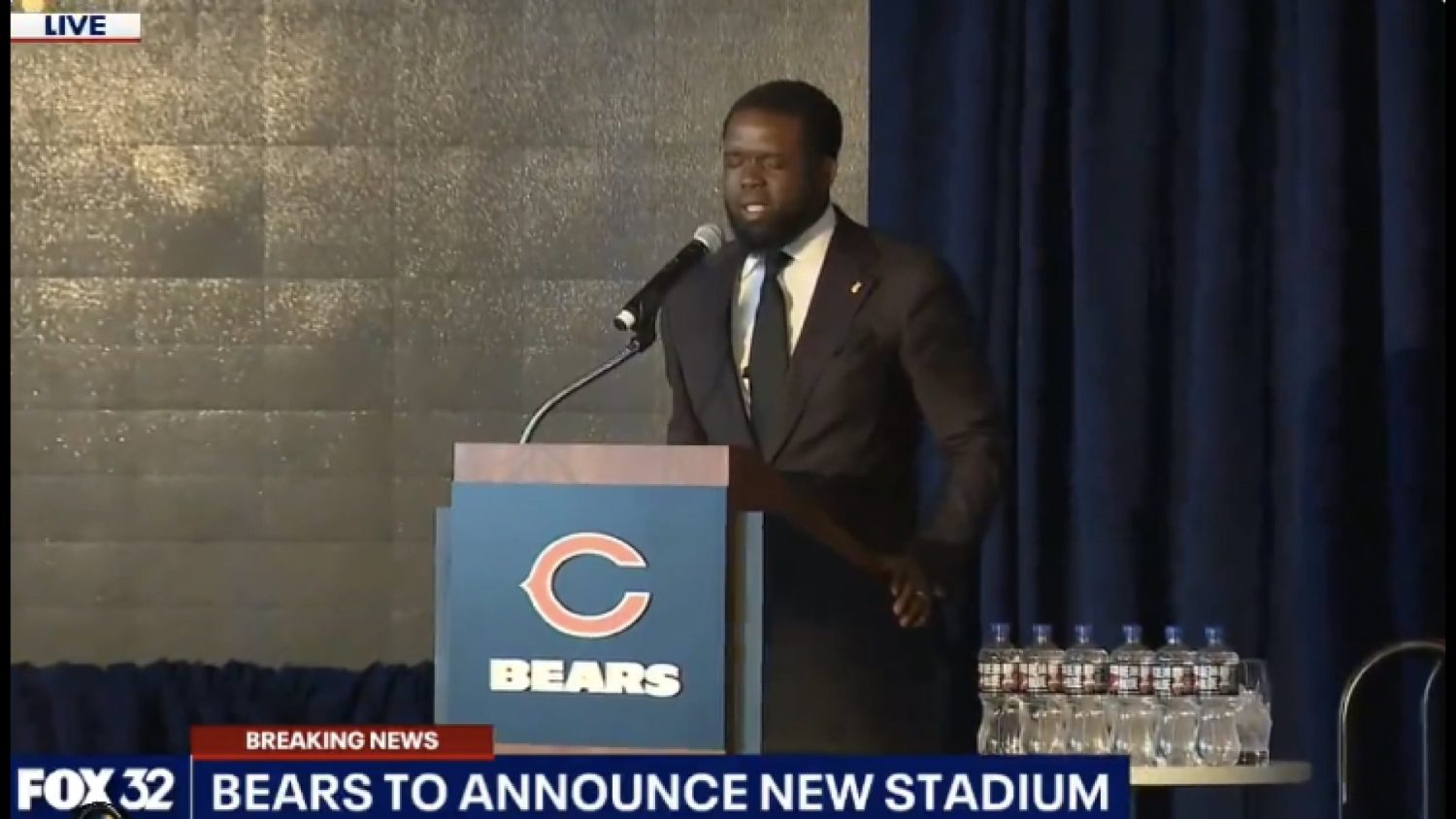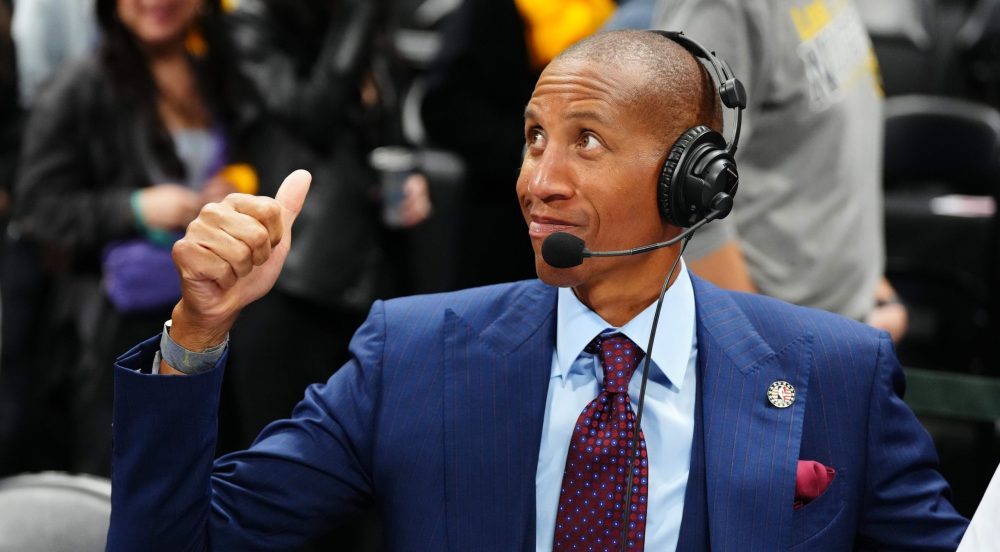The past week saw plenty of NFL stories that went far beyond the on-field games, particularly those on Ray Rice, Adrian Peterson, Greg Hardy and Ray McDonald. While those stories had on-field implications (and thus, fantasy implications), some felt the severity of the off-field incidents should preclude any early discussion of what those incidents and the punishment for them (or lack thereof so far, in McDonald’s case) meant for real teams, much less fantasy football teams. ESPN’s Matthew Berry wrote a thoughtful column about the backlash he received for discussing which Ravens RBs to pick up in the wake of the Rice news Monday, and it illustrates that there are plenty of news consumers out there who think early different angles on hard news are #TooSoon:
Like pretty much everything else on Twitter, reaction was mixed. Many had follow-up questions and thanks. Others felt I’d been inappropriate. A friend texted me immediately: “You’re going to get crushed for the timing of that tweet.” One of our biggest stars here at ESPN quietly pulled me aside and, in a very gentle way, suggested that I probably should have waited. Certainly there were Twitter users who felt this way, with opinions ranging from “There are more important issues at hand” to me being an example of everything that is wrong with the world in general and ESPN in particular.
Eric Fisher, a reporter for the Sports Business Journal and someone I consider a friend and have a lot of respect for, summed up their feelings nicely.
https://twitter.com/EricFisherSBJ/status/509052524096417792
Berry goes on to discuss the challenges in his position well. He doesn’t want to marginalize domestic violence, but at the same time, tons of people are reaching out to him for the fantasy impact of the situation, and that’s his role. There’s news there to report. However, he feels conflicted about it:
If they want to hear someone discuss Ray and Janay Rice, the NFL and what this story says about both football and society at large, ESPN has no shortage of talent or platforms for it. But if they want to know the fantasy impact of it, or just want to think of something, anything other than seeing video of a man hitting a woman in the face, they are turning to me. That’s my lane. That’s what I do.
Our beloved former leader, George Bodenheimer, created the ESPN mission statement, which is simply this: To serve sports fans wherever sports are watched, listened to, discussed, debated, read about or played.
Simple and important, it may sound Pollyannaish, but most of us at ESPN try to live by that. Certainly I do. Serve sports fans. Wherever and however we can.
I want to do that. Desperately. I’m just not sure the best way, and I certainly didn’t mean to trivialize domestic violence. I just wanted to do my job. I’d be lying if I said I wasn’t having a crisis of conscience. Am I somehow part of the problem?
There’s no one solution to the #TooSoon issue that will make everyone happy, and that’s because news consumers are, above all, individuals. Berry’s decision to provide the fantasy analysis that many people look to him for (he was asked to do so on TV as well as Twitter, and received five texts and over 400 tweets about the Ravens’ RB situation before he tweeted about it) is his job in the eyes of some and something to be avoided at all costs in the eyes of others, and those two camps are unlikely to ever completely agree.
Berry’s situation is far from the only one where this has happened, either; Darren Rovell is often blasted for reporting on the financial impact of players’ injuries, and stories about what an owner’s death could mean for the future of a franchise have often been criticized. While no approach will satisfy everyone, though, there are a few guidelines individuals and media organizations could use to ensure they’re being responsible and respectful if they do decide to report on an aspect of news that might be seen as #TooSoon. Here’s a proposed checklist of questions to ask before doing so:
1. Is this adding to the conversation, or piling on?
In a crowded media landscape, there’s pressure to discuss trending topics and to do so with hot takes that stand out from the crowd. If a story or a tweet’s primarily a way for your outlet to get its own name out there, that’s problematic. (Local sports radio does this at times, as do the likes of Colin Cowherd and Skip Bayless.) If a story’s too much of a forced attempt to “localize” something, that’s an issue as well. However, there are plenty of different angles that can and should be explored on issues like the Rice incident; for example, it started some excellent conversations about gender and sports media. Whether fantasy impact is a worthy angle depends on your taste, but it’s adding something that’s not already out there. This will come up later in the discussions of context and role, but there’s an argument to be made that Berry’s tweets about the Rice’s suspension’s fantasy impact are more original and more important than if he’d just added to the flood of people criticizing Rice. Bringing a new angle to the table is a key part of avoiding the #TooSoon trap.
2. Does the added information have enough value?
This works in conjunction with the above step, and it’s particularly applicable in Berry’s case. If he’d just tweeted that Rice would be out for fantasy purposes, that’s a different angle, but one without a lot of value (as it’s pretty obvious). However, Berry tweeted his views on the likely candidates to replace Rice and how they stacked up from a fantasy standpoint; that’s much more useful information. Similarly, writing just “The owner’s death could mean the team will move” may be a different angle, but it’s not adding much. Including specifics about likely buyers and destinations makes that more compelling. If a story or tweet is likely to take “too soon” criticism, it should have enough value to be worthwhile for at least some consumers.
3. Is the information contextualized properly?
This is essential, and it’s where Berry may have gone wrong. In his piece, he talks about how the Rice news horrified him, but he stayed silent on the issue on Twitter until discussing the Ravens’ fantasy situation. If he’d precluded those tweets with something expressing his horror at Rice’s actions, the #TooSoon criticism might have been reduced. It wouldn’t have satisfied everyone, as there are undoubtedly some who still think fantasy implications should never be discussed around an issue like this, but it would have at least shown that he was aware of the larger issues at play and considering them, not just behaving like a fantasy football robot. This applies to all forms of media, too; if your article or segment is about business implications of an injury or a change in ownership of a franchise, start it off with a preamble about the main situation and perhaps links to or mentions of other pieces that explore that in more depth. Tangential issues can and should be explored if they’re important enough, but they shouldn’t ignore or diminish the main issue. Again, this won’t eliminate #TooSoon complaints, but it may help reduce them.
4. Is the information being delivered to those who want it, or forced on consumers that don’t?
This final step is a big one, and it reinforces the importance of medium and role. Marshall McLuhan’s famous line that “the medium is the message” is worth considering here; if the exact same report plays out in the medium of a broadly-targeted news show (or radio broadcast, or front page), that’s quite different from if it shows up in something something more specifically aimed at fantasy fans.
For example, there’s a big difference in Berry discussing the Rice situation’s fantasy implications as part of a fantasy-focused show or a specifically-fantasy segment, or if he did that on a more news-focused show like SportsCenter or Outside The Lines. The former is already aimed at a target audience of those who care about fantasy football; the latter would be elevating the Rice situation’s fantasy implications to the realm of the rest of the Rice news, and it would be presenting it to a large audience that wouldn’t want to hear it.
Similarly, “Rice situation’s fantasy impact” should not be a main headline on ESPN.com’s main page (or the main page of any of its competitors), but it could possibly be an extra link there, and it certainly should be discussed on the ESPN fantasy pages. That provides the information for those who want to seek it out, but doesn’t force it on those offended by that discussion.
Twitter leads to an interesting subdiscussion here. On one level, there isn’t currently an easy way to receive some of an individual’s tweets and not all of them; you pick the people you want to follow, and then you generally see what they tweet (unless they use hashtags you’ve muted), which has led to some of the “Stick to X” comments when sportswriters have expressed opinions on other sports than what they usually cover, or entertainment, or current events. On another level, though, Twitter has powerful curation tools on a wider scale; you can pick who to follow, you can specifically block people to avoid seeing them retweeted into your timeline, and you can mute certain users or hashtags for the short- or long-termiscussion here. On one level, there isn’t currently an easy way to receive some of an individual’s tweets and not all of them; you pick the people you want to follow, and then you generally see what they tweet (unless they use hashtags you’ve muted), which has led to some of the “Stick to X” comments when sportswriters have expressed opinions on other sports than what they usually cover, or entertainment, or current events. On another level, though, Twitter has powerful curation tools on a wider scale; you can pick who to follow, you can specifically block people to avoid seeing them retweeted into your timeline, and you can mute certain users or hashtags for the short- or long-term.
Thus, those who don’t want fantasy comments shouldn’t follow Berry (and those who particularly hate fantasy comments should probably block or mute him to avoid seeing retweets), and it’s hard to fault him for making fantasy comments on a platform where he largely discusses fantasy football. This doesn’t solve the #TooSoon issue for the group of consumers that normally wants fantasy information but didn’t in this case, and it doesn’t mean that Berry handled it perfectly (as mentioned above, he probably should have started with a comment about the severity of the Rice situation before diving right into the fantasy impact), but he shouldn’t get too much blame for what he did here.
Any decision on how to handle alternate angles of a big, serious story is never going to appease everyone. Berry mentions George Bodenheimer’s ESPN mission statement “to serve sports fans,” but sports fans are not a uniform group, and what serves some fans will alienate others. However, some critical thinking along the lines of the above checklist can help to determine what legitimately is too soon and shouldn’t be reported, and what should be reported, but carefully and in appropriate venues. The #TooSoon criticism will never go away entirely, but there will also always be plenty of people who want those alternate angles addressed. Individuals and media organizations should be careful trying to balance those interests, and they should do so in a respectful way that acknowledges both sides’ positions.






Comments are closed.